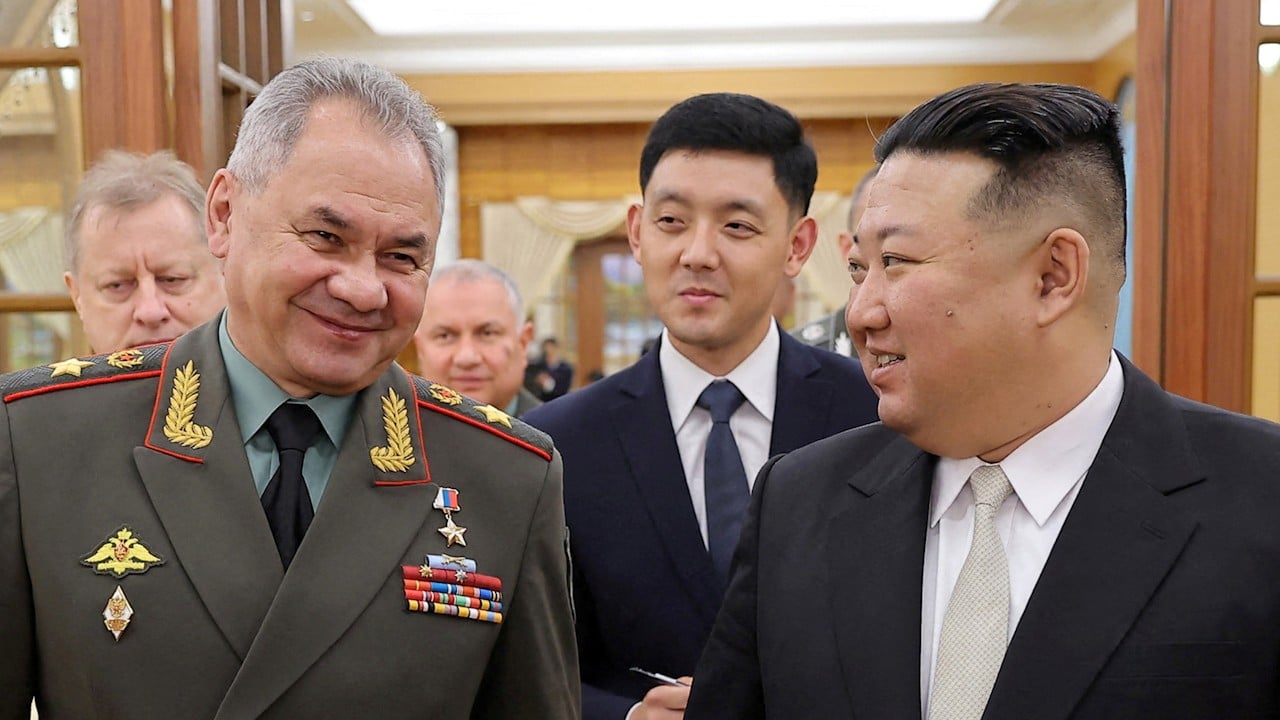Li and Shoigu are among the first foreign guests Pyongyang has invited into the country since it was locked down during the Covid-19 pandemic in 2020. Li is the first Chinese official to visit North Korea since Chinese President Xi Jinping’s state visit in 2019.
The military parade, hosted by North Korean leader Kim Jong-un, featured the country’s most advanced intercontinental ballistic missiles – the Hwasong-17 and Hwasong-18.
The missiles are believed to have a range of 15,000km (9,320 miles), making them capable of striking the US mainland. The Hwasong-18, which was test-fired earlier this month following its first test in April, is said to be better at avoiding pre-emptive strikes because it uses solid-fuel engines and takes less time to prepare than liquid-fuel propellants.
The event also showcased newly developed surveillance and multi-role attack drones. Kim’s visit to a weaponry exhibition with Shoigu the previous day featured similar aircraft that appeared to be modelled after the US Global Hawk unmanned aircraft system.
The presence of the Chinese and Russian delegations at the war commemoration suggested increasingly closer ties between the three countries – communist allies during the Korean war – in the face of rising US-China tensions.
Park Won-gon, a professor of North Korean studies at Ewha Womans University in Seoul, said China and North Korea interpreted the Korean war with a similar historical narrative – resisting the United States and uniting against it – allowing the 70th anniversary of the armistice to be used by Beijing and Pyongyang to show off strong ties.
“Since they say that it is a war against the US and that they have won, there is definitely a side that agrees with such a historical interpretation,” Park said.
“There is a need for North Korea and China to strengthen their camps and cooperation against the US.”
On Wednesday, Kim visited a cemetery for Chinese soldiers who died in the Korean war, which Chinese foreign ministry spokeswoman Mao Ning said reflected “the inheritance and development of the traditional friendship between China and North Korea in the new historical period”.
Park said Kim might try to use the visits by the Chinese and Russians to further his agenda. “Having the delegations from China and Russia at the military parade could be an effective way to promote Kim’s achievements,” Park said.
“Although China and Russia are not explicit, it can suggest their tacit agreement on North Korea’s nuclear development.”
Washington, meanwhile, has been trying again to pressure Beijing to use its leverage on Pyongyang to return to denuclearisation talks.
“We believe that Beijing has influence over Pyongyang, and we hope that it will use that influence to encourage Pyongyang to return to dialogue and refrain from destabilising activities,” US State Department spokesman Vedant Patel said on Thursday, in reference to the Chinese visit to North Korea.



